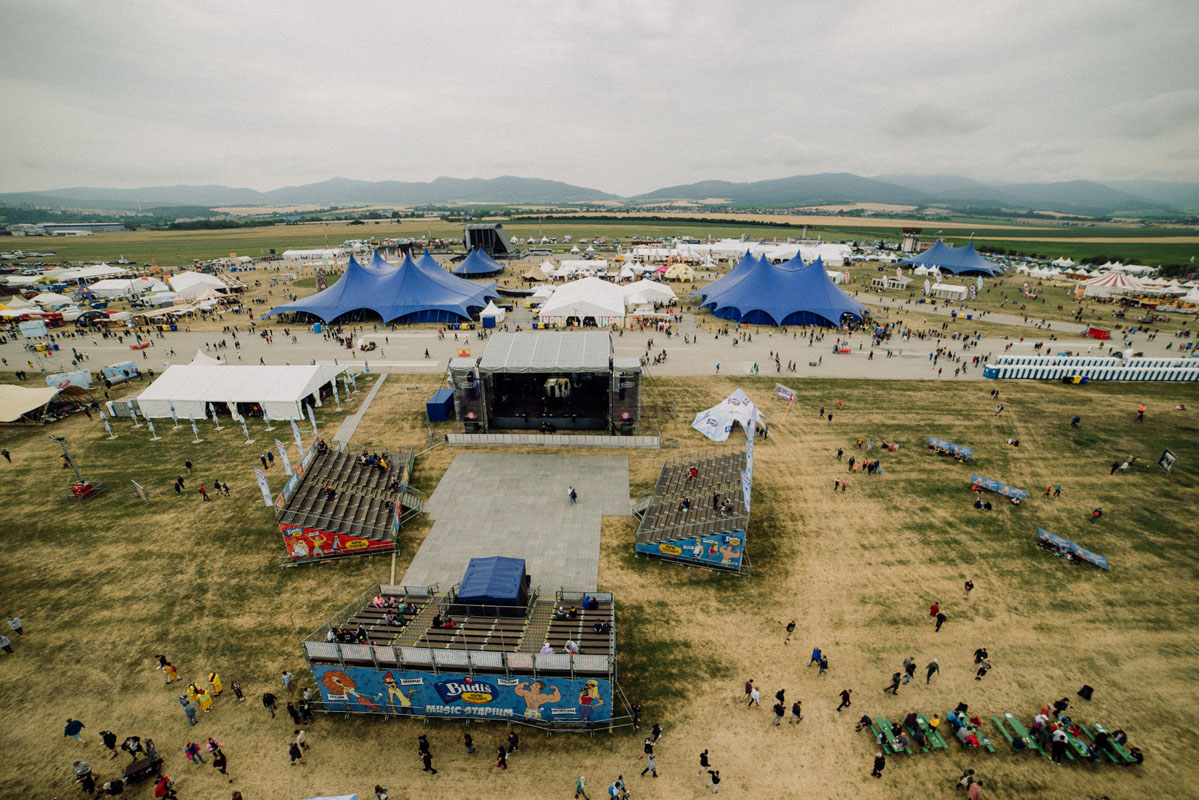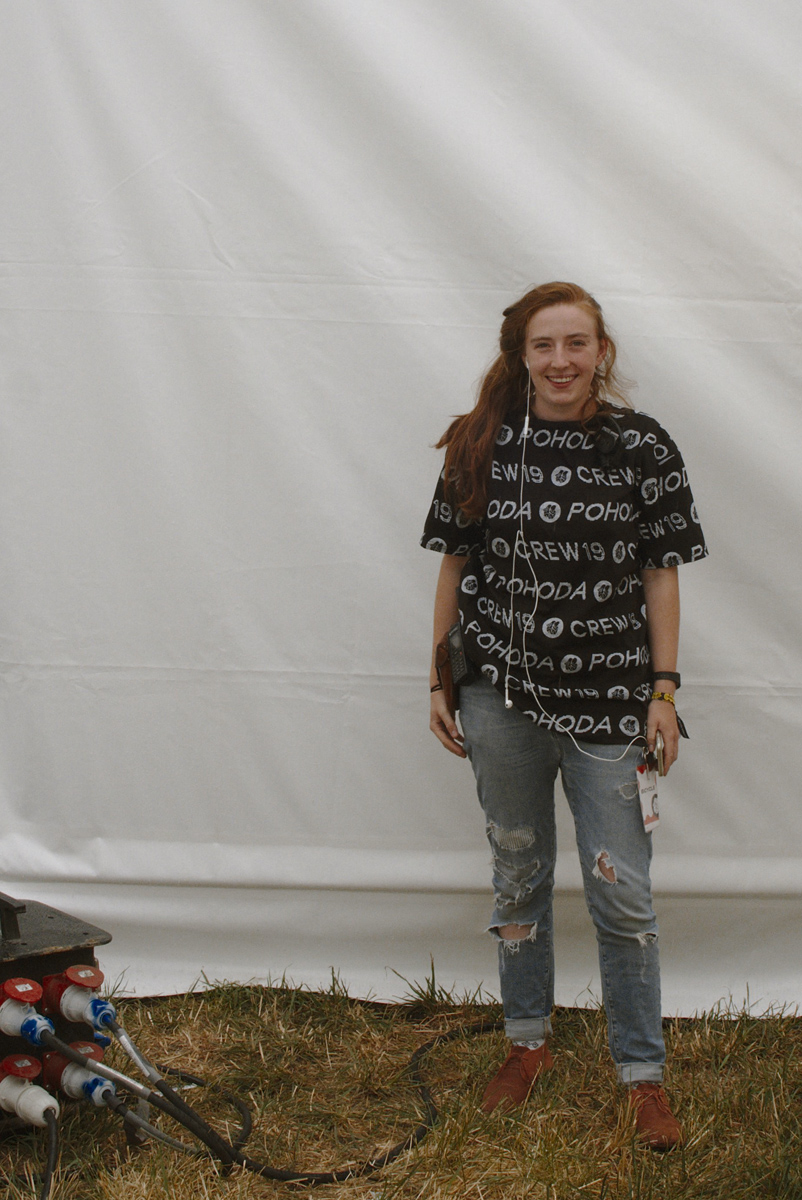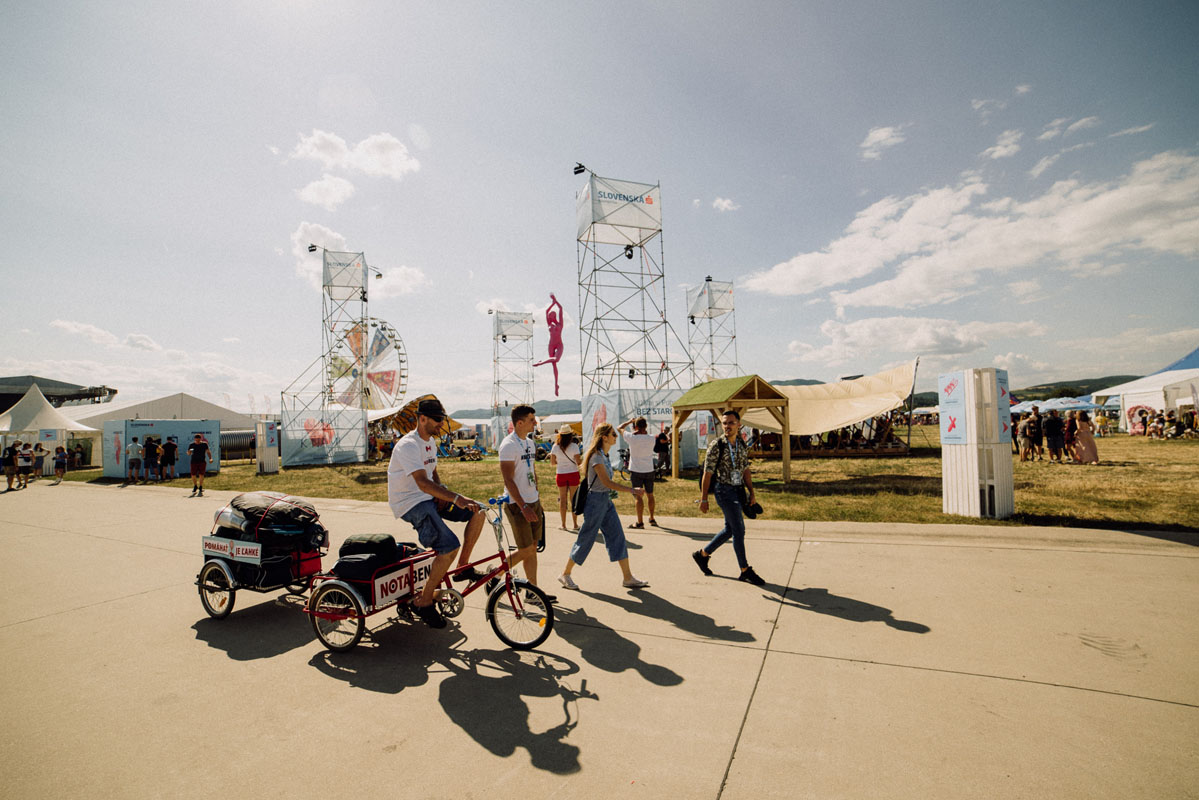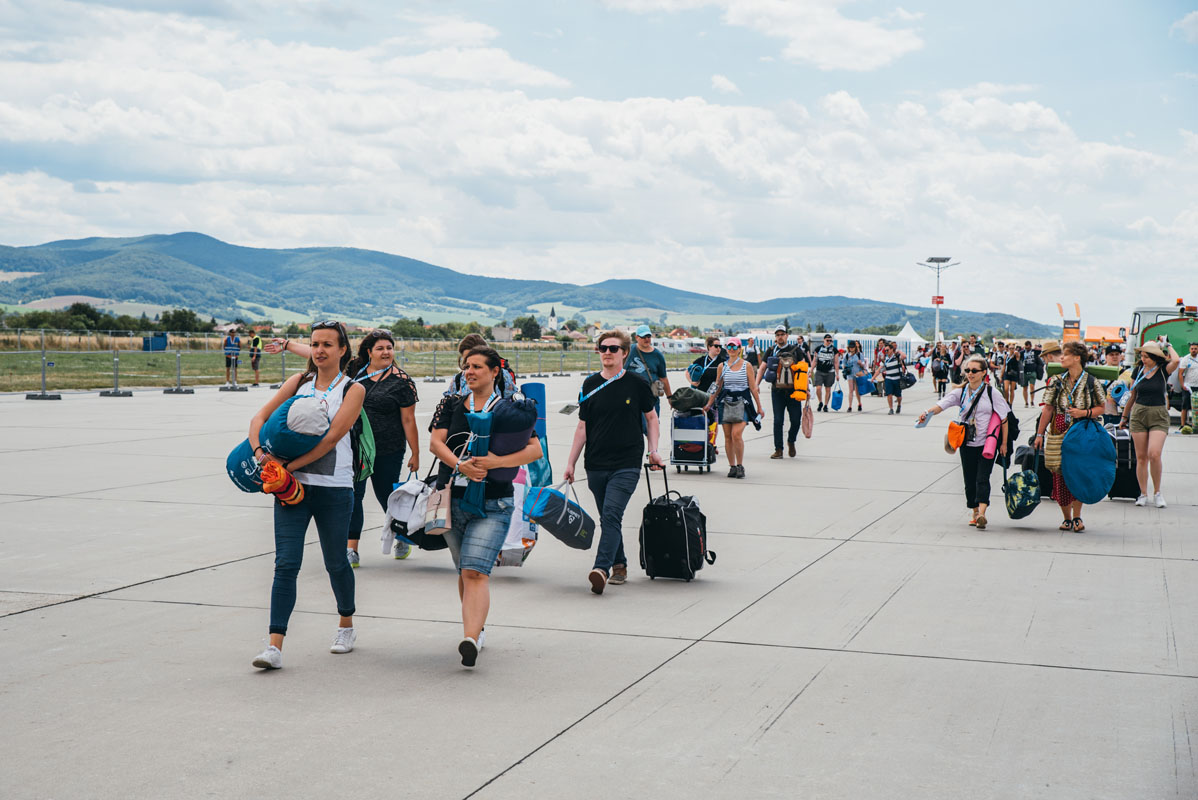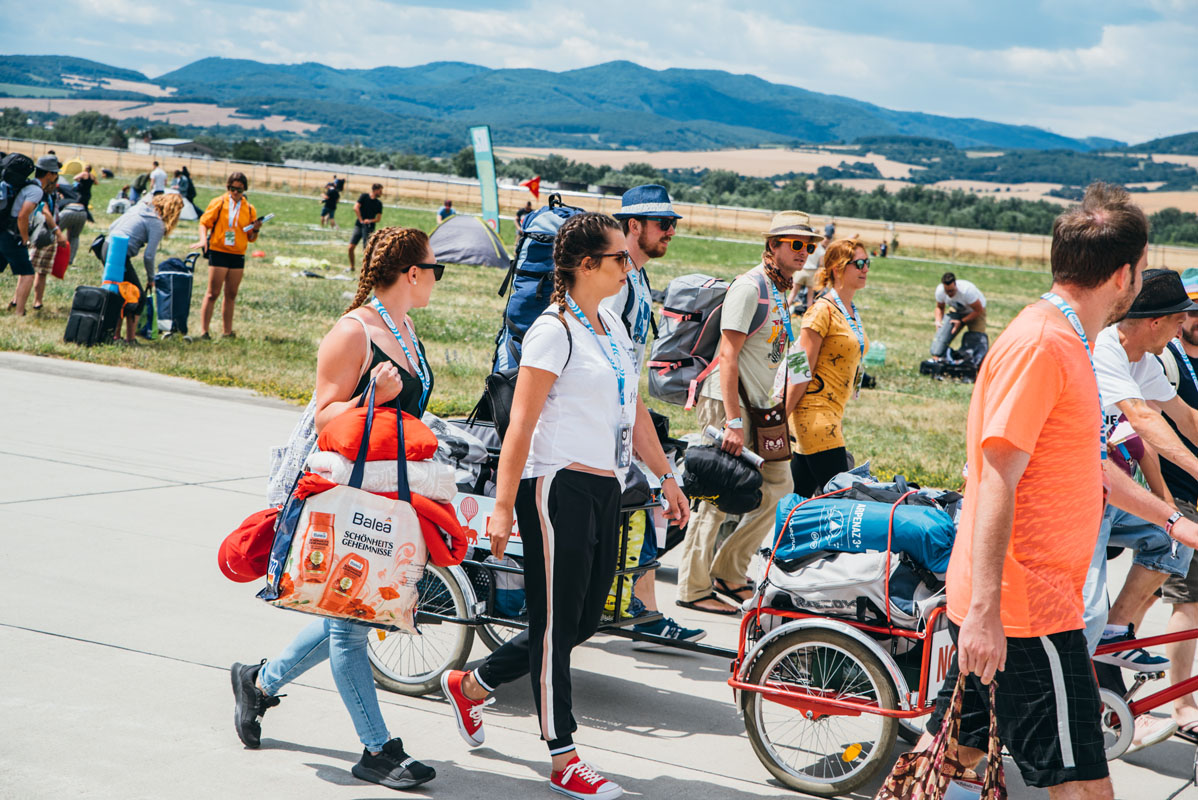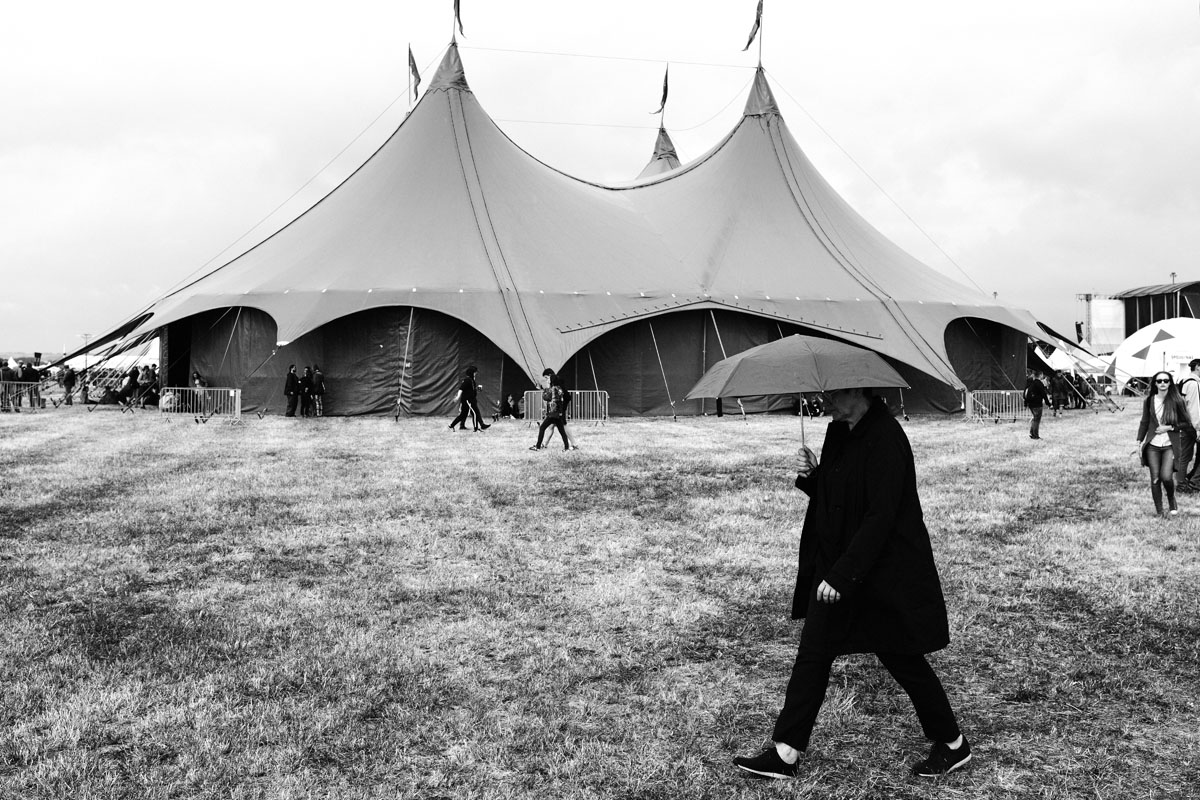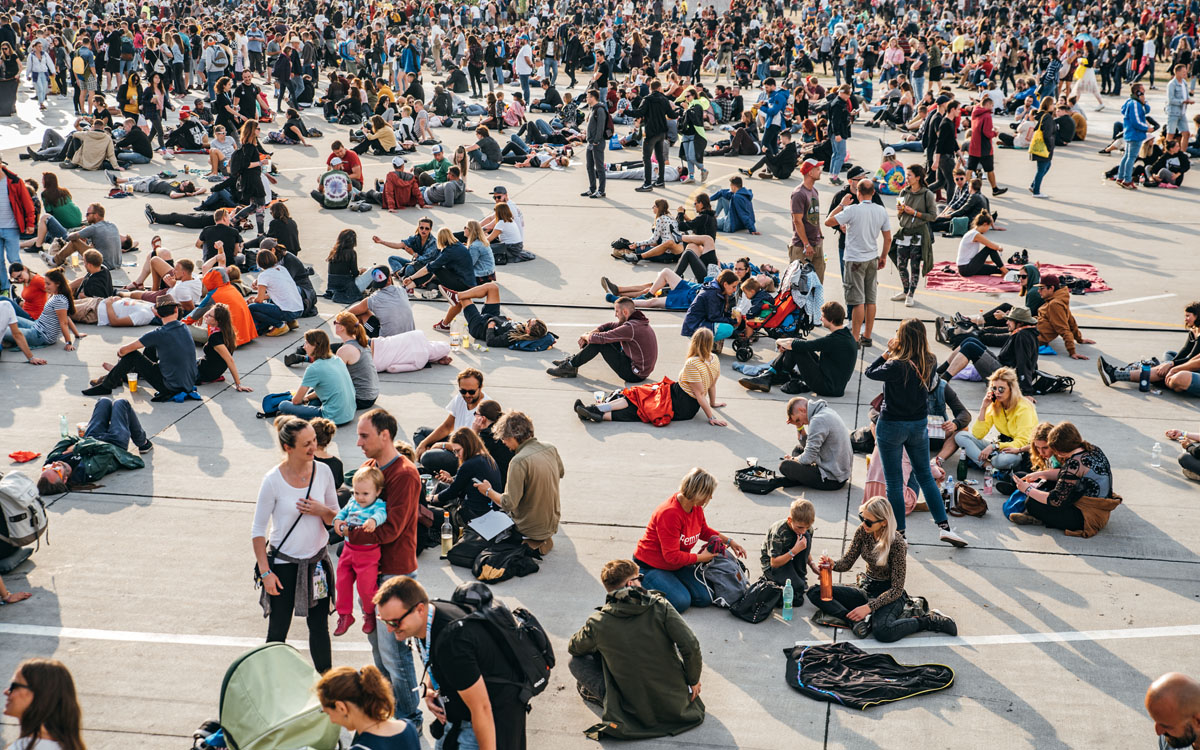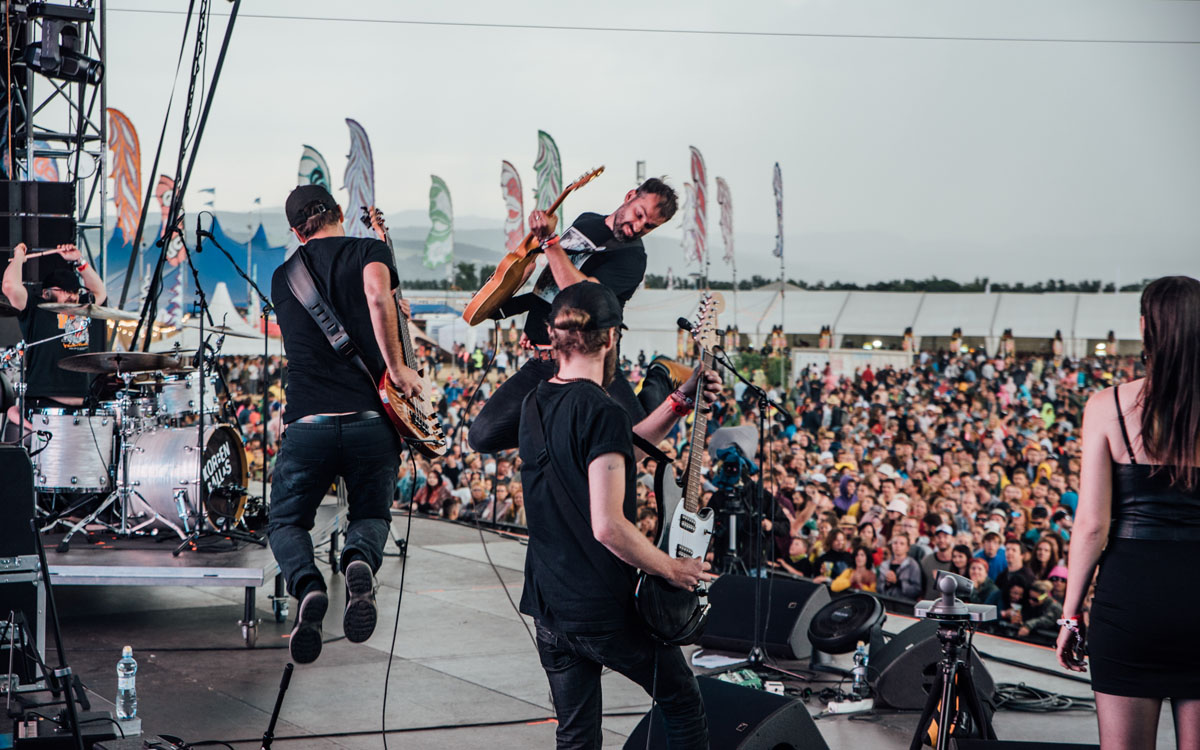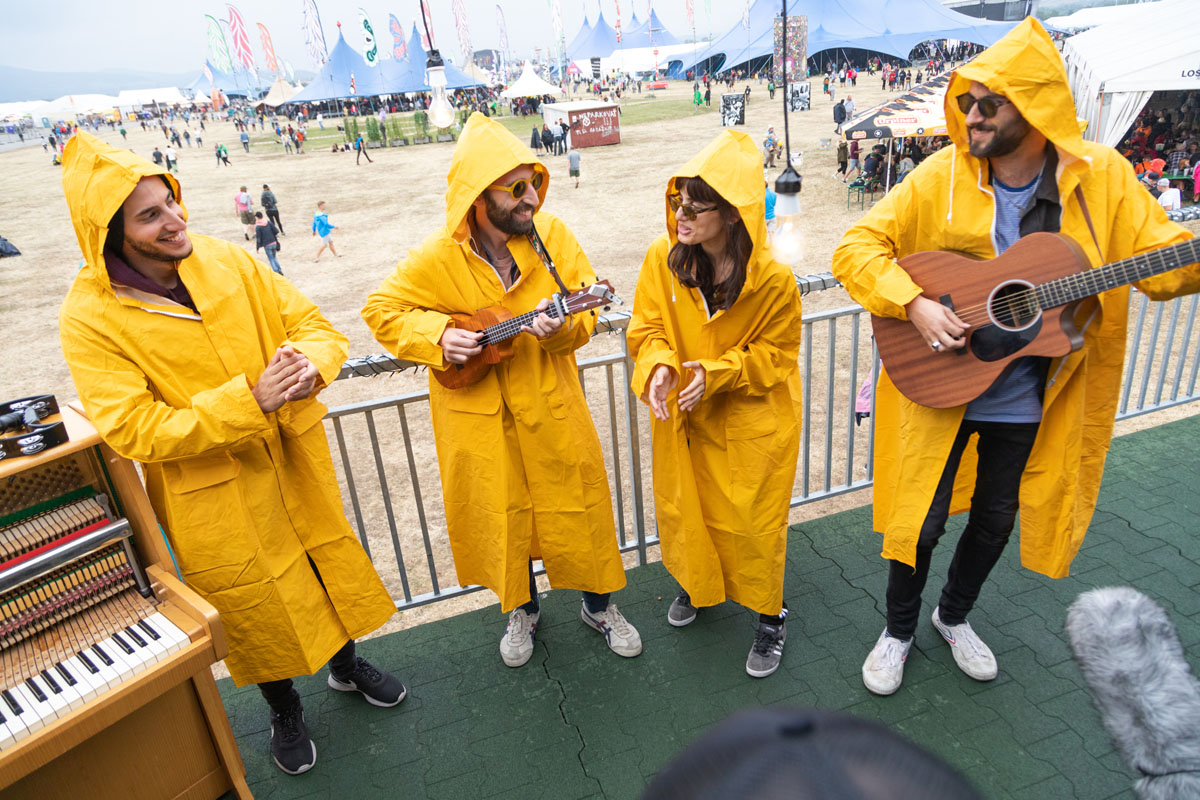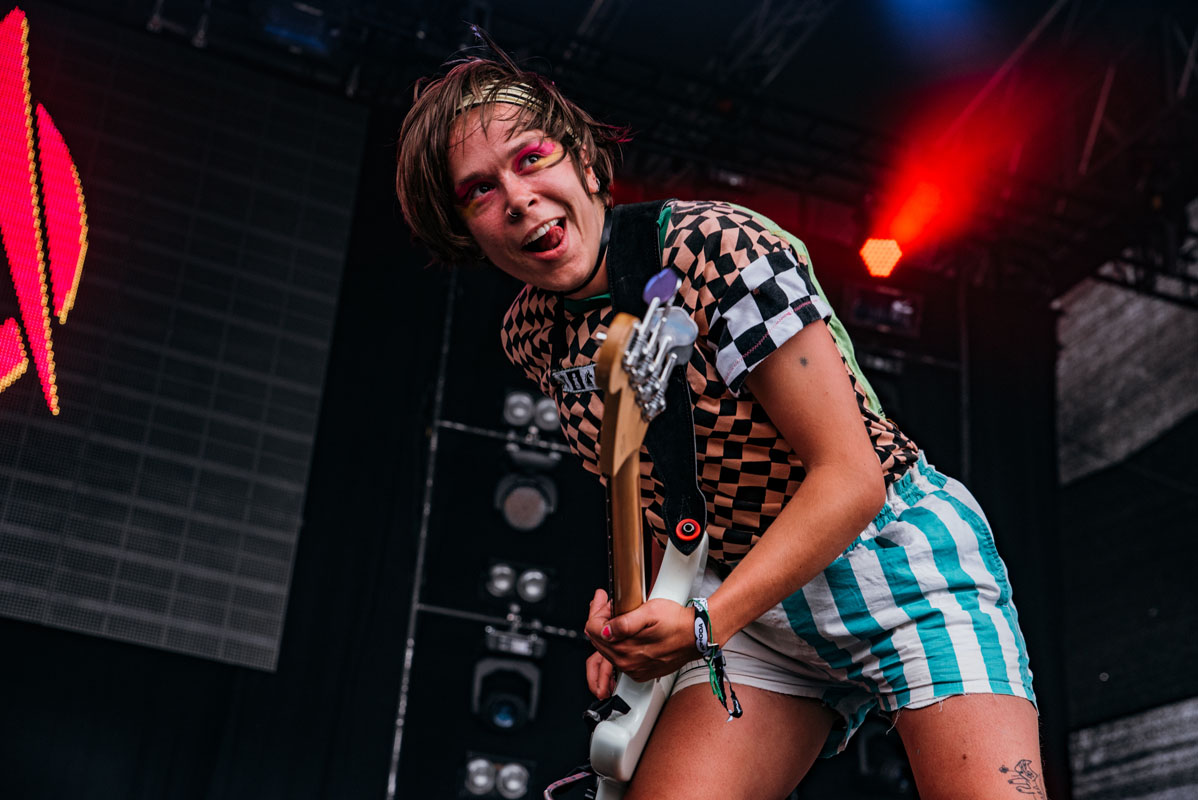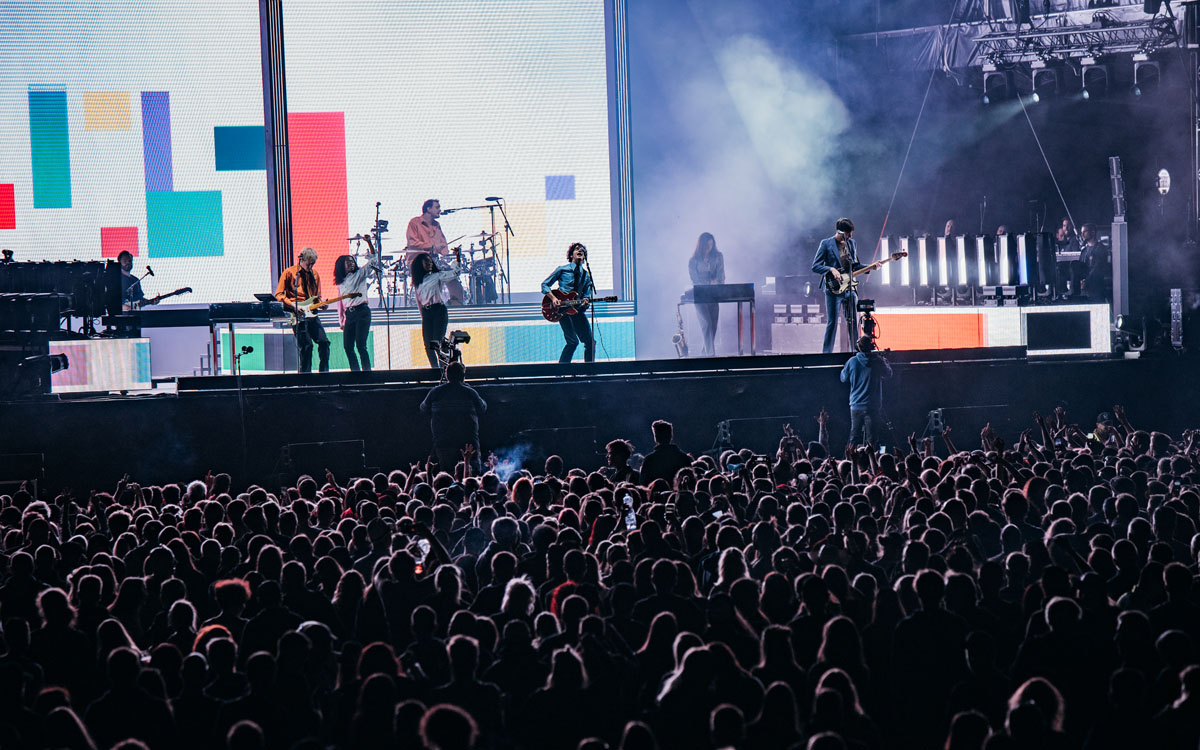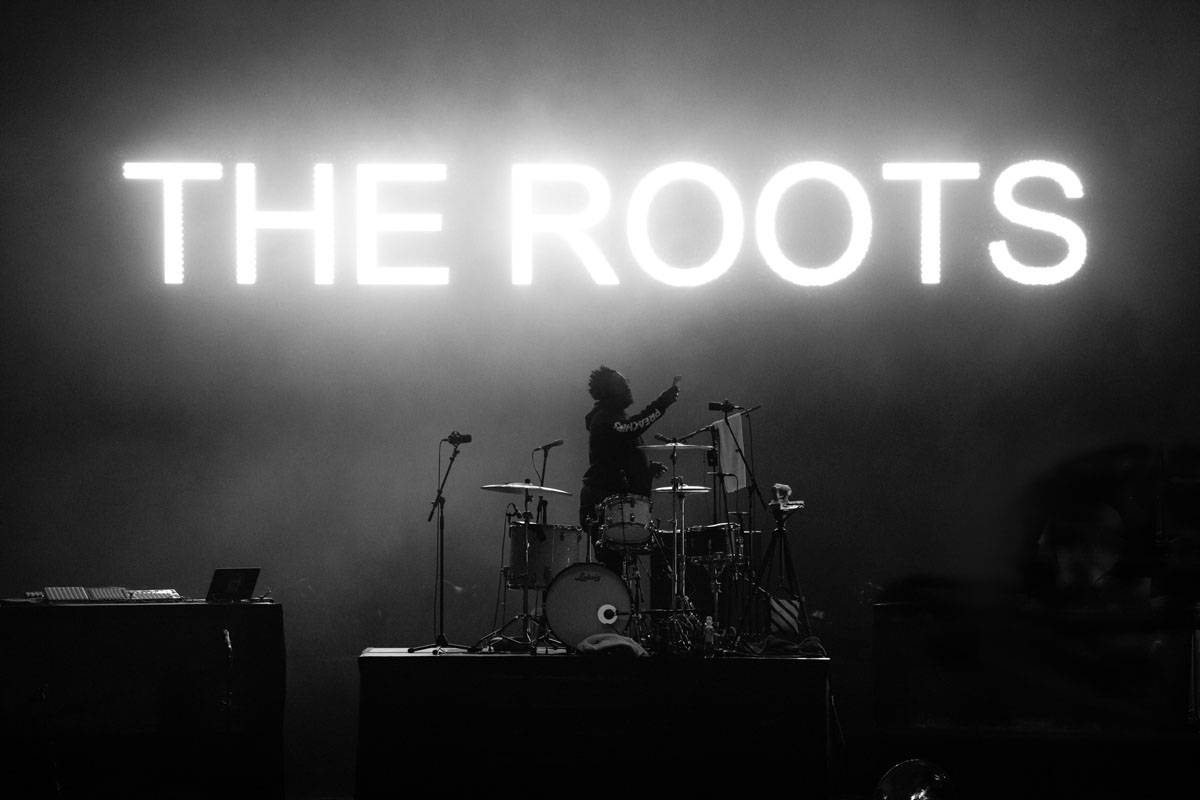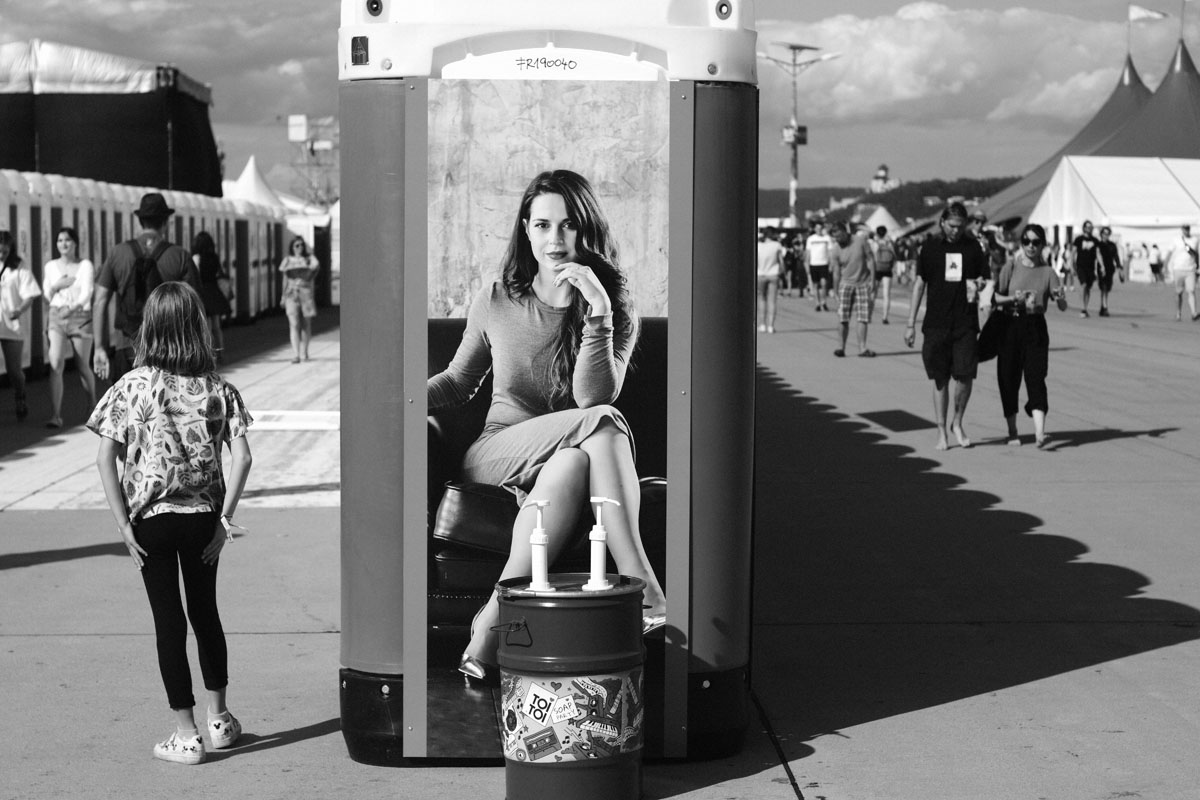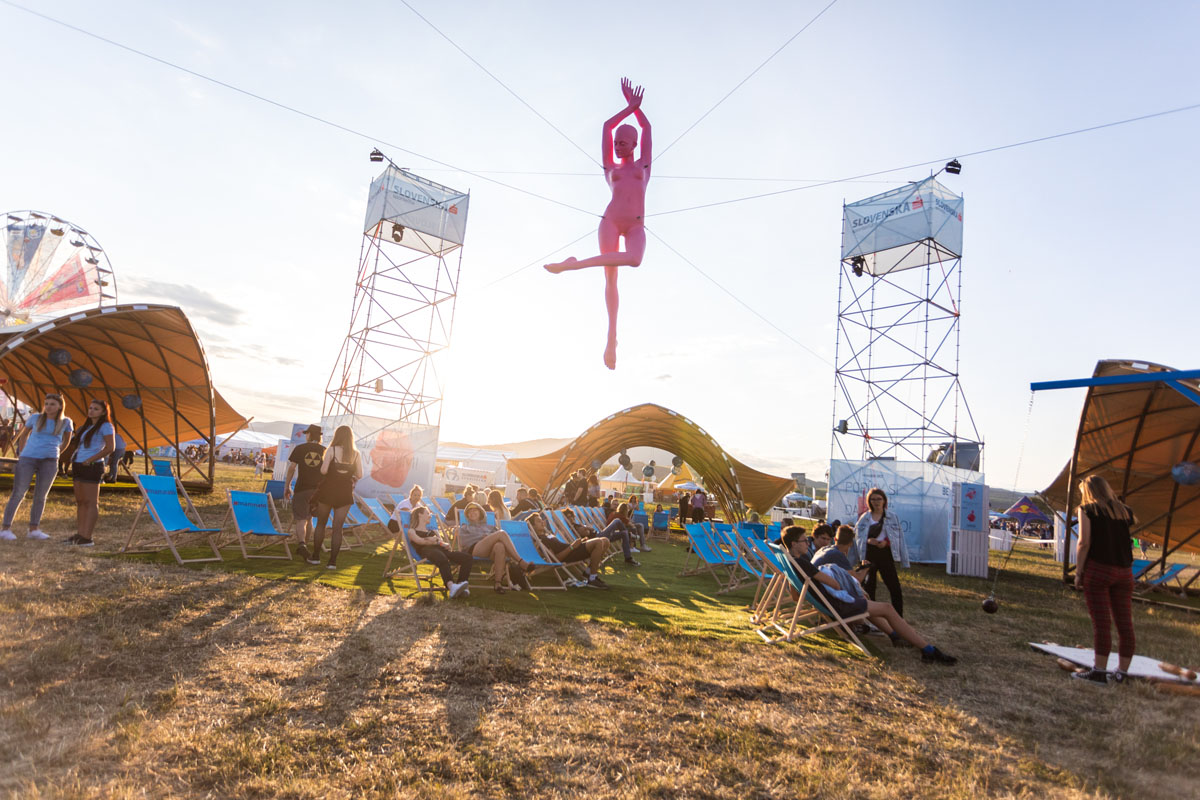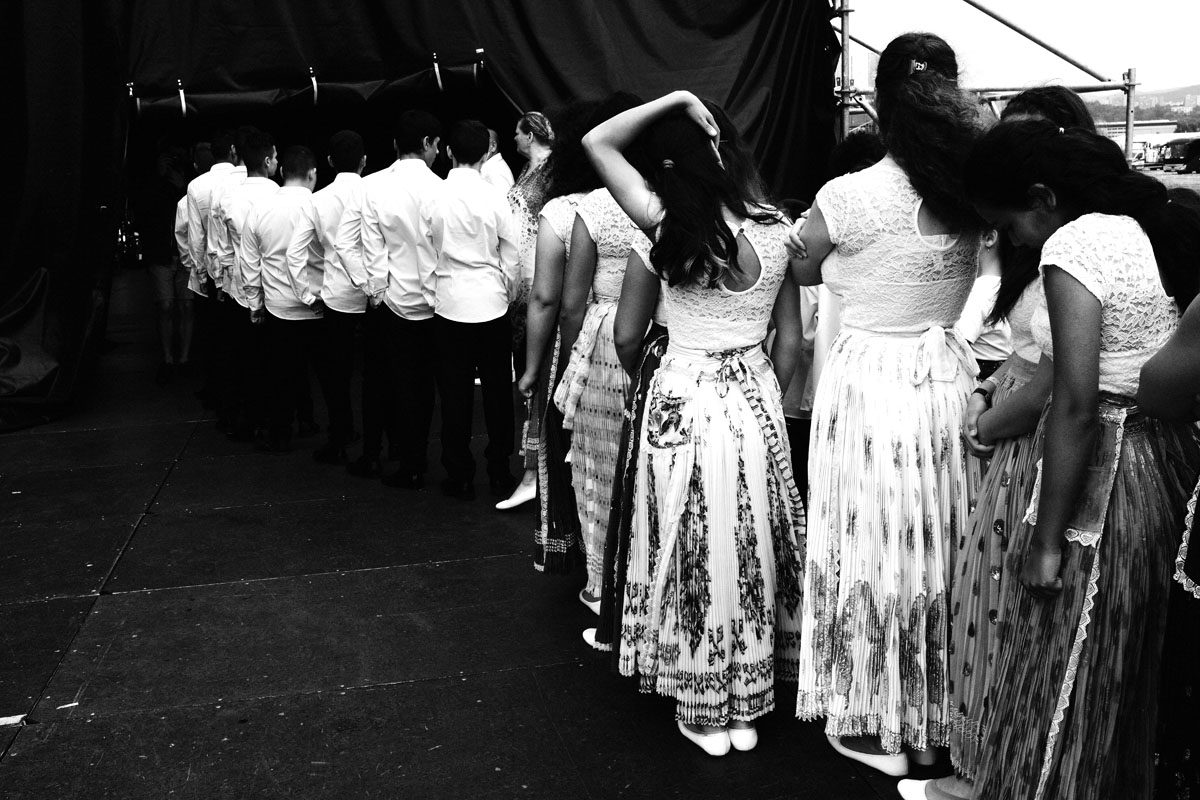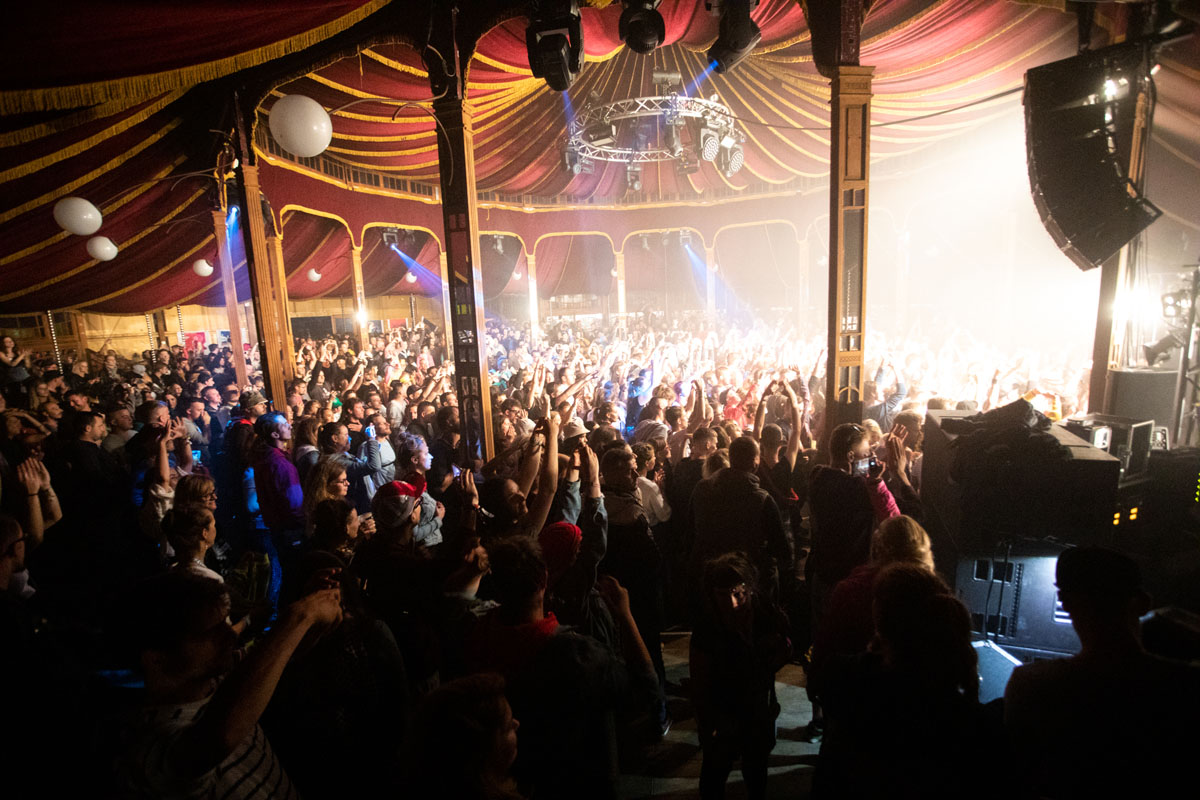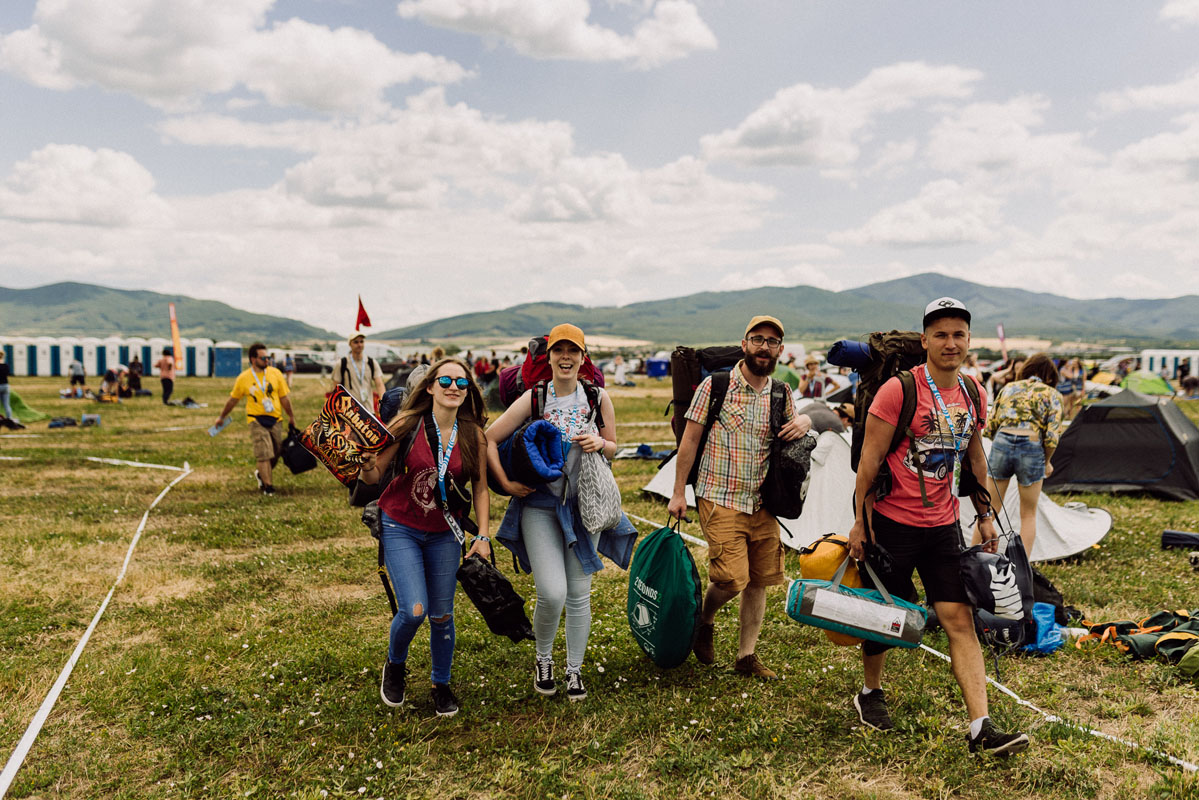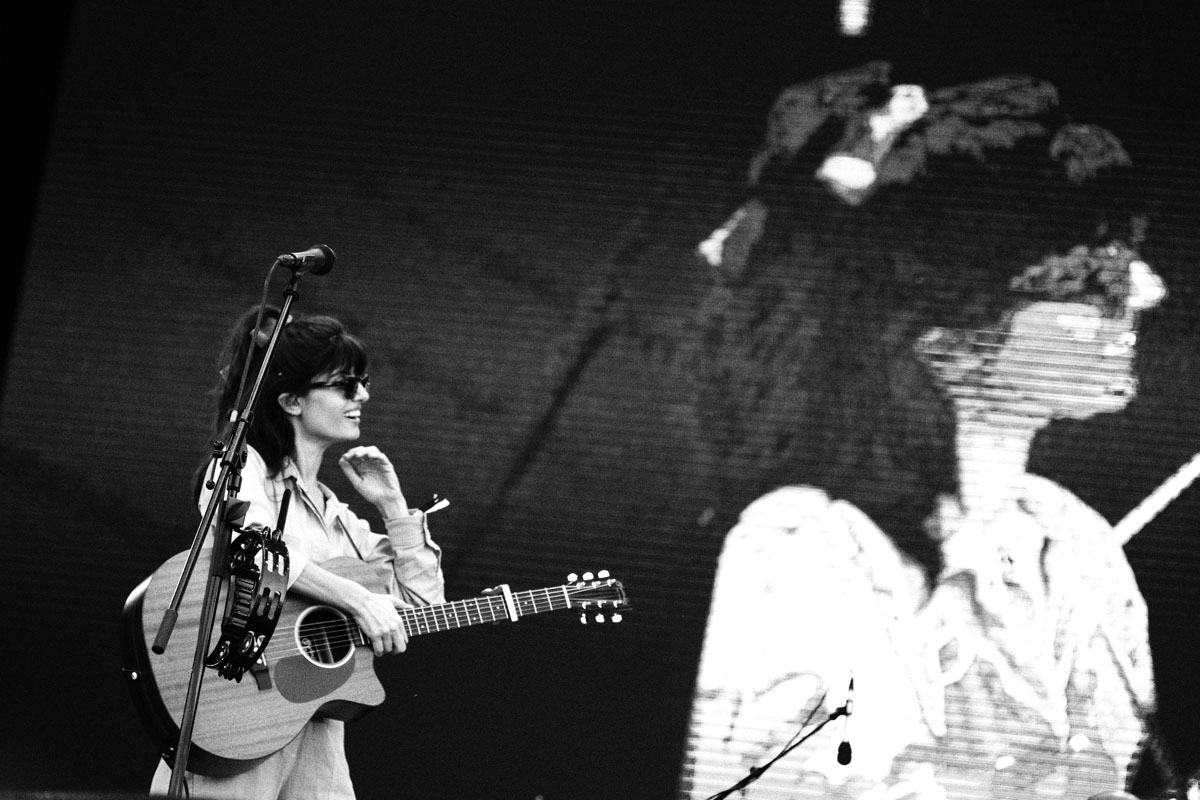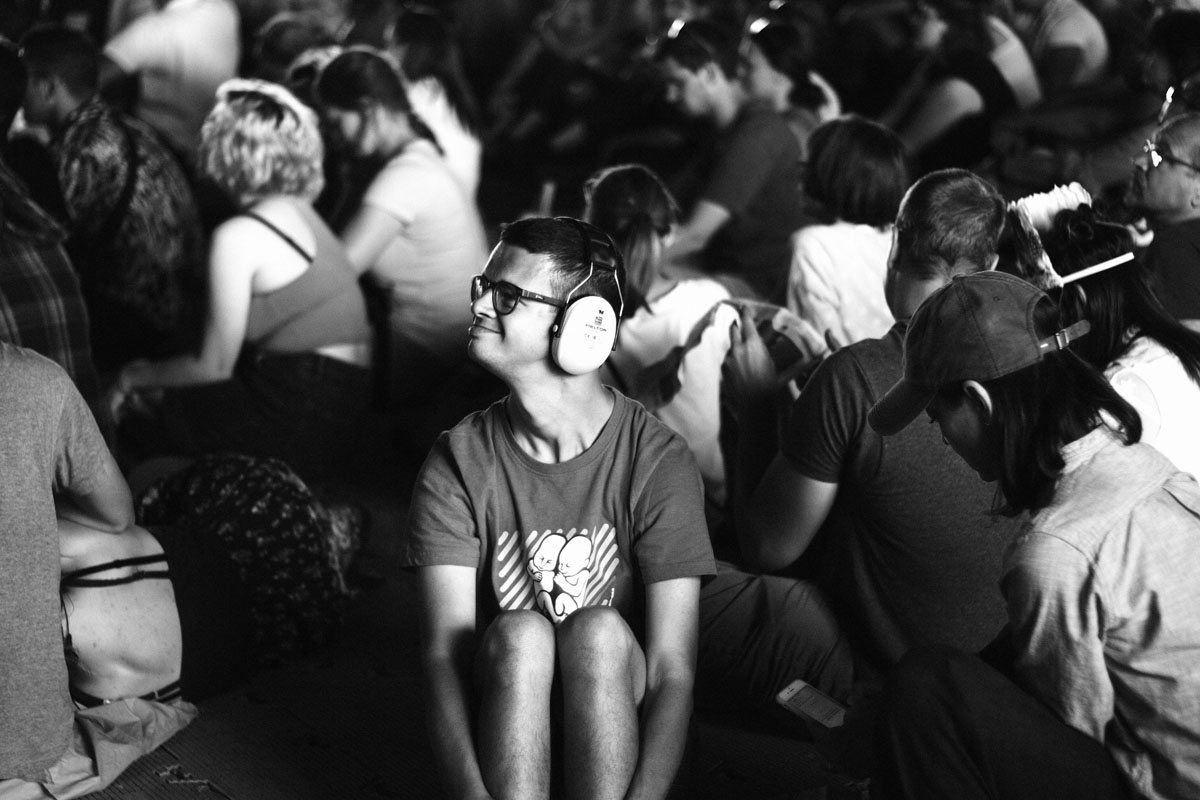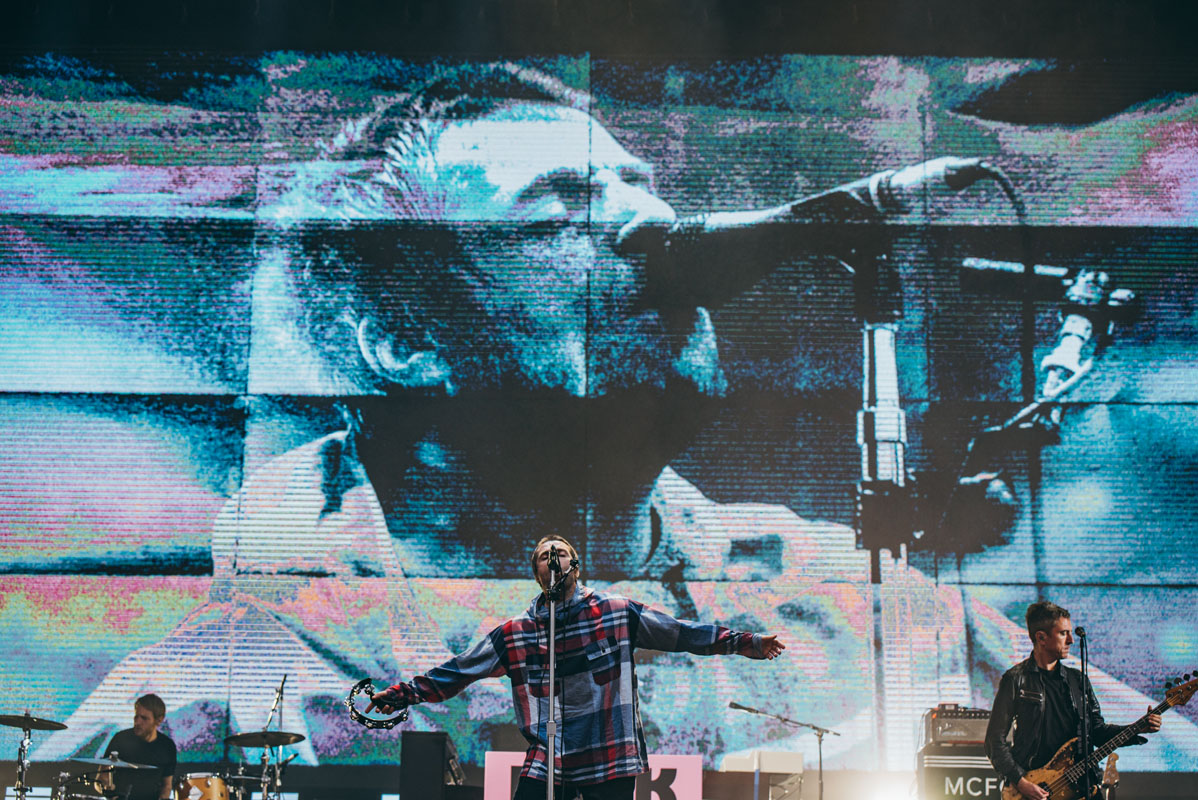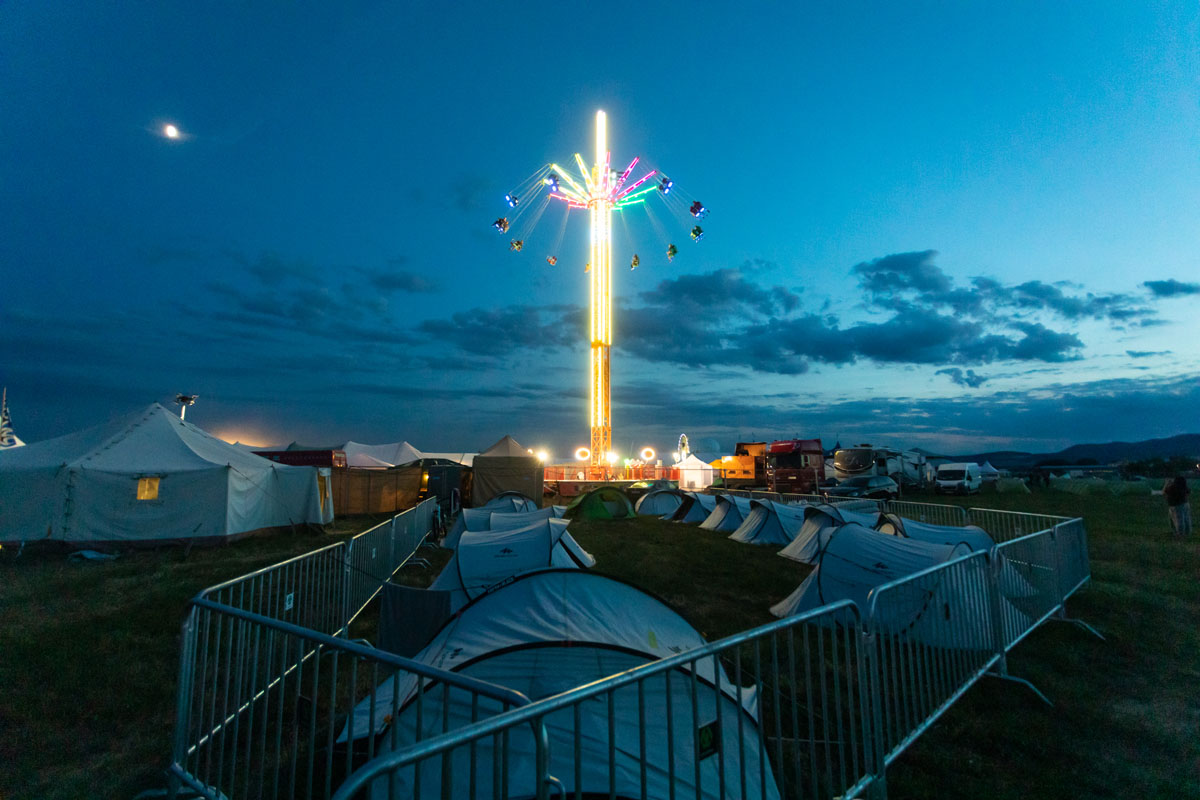text Johannes Jacobi, Isabel Roudsarabi
redaktion Robin Hartmann
fotos Nada Koscikova, Lucia Kerida, Martin Bobok, Michal Augustini, Michal Babinčák
Slovakia has an extremely small festival landscape compared to other countries like the UK or Germany. All the more amazing, that one of just a couple of the festivals located there, has been model and example to others for years and years now.
In 2019, Pohoda already won the "Take a Stand" award and their curator and main organiser Michal Kaščák the award for excellence and passion at the European Festival Awards at Eurosonic Noorderslag in Groningen, NL, and is nominated 5 times again this year.
Pohoda festival feels so very peaceful and relaxed, there's no space for a bad conscience if you sleep till midday, go out to have a delicious mocha at one of the coffee carts and then come back to your camp to have another little nap before watching some of the international headliners or smaller slowakian newcomer bands.
This is a place, where it is possible, that a small British band (Sink Ya Teeth) can play a headline-slot at the mainstage because Lykke Li's flight was canceled. It's a place, where there are close to no groups of swearing drunks, because only beer (admittedly 12 percent) and wine is sold at the grounds; where the field is cleaner than any other festival's, because there are volunteers everywhere, that explain to you, in which can to sort your trash. Where the president Zuzana Čaputová's speech is followed by a workshop on knitting and recycling old shirts.
This is a place where you immediately feel welcome.
We talked to Suzanne Verschueren, international press manager at the festival, about the people of Pohoda, politics and feeling at home.
Hey Suzanne, lovely to have a chat with you! Can you start by telling us how you ended up working at Pohoda?
Four years ago I was here as a visitor. I studied event management, music and entertainment at the time, so I was actually looking for an internship. I ended up sending an E-mail to Michal Kaščák detailing how I really didn't want to go home and how this weekend felt perfect so I said: “You know, can't I do my internship with you and stay with you guys for a while?”, and he responded: “Yes, when are you available?” - so that went perfectly for me.
What is your position at the festival now?
International Media – but it's quite a flexible job. If ToiToi's need to be replaced, I would make full use of my drivers license and replace them, you know? (laughs)
So what was the main thing that made you stay here? What convinced you?
First, the atmosphere of the festival. Being here you feel like home, there is not too much pressure on you; you don't have run to a certain stage to be the first to see someone, because there's enough space everywhere. Everyone is your friend and will start talking to you – I came here as a foreigner - I am not Slovak myself - yet even then I felt like being part of the group. So that was my first impression as a visitor. It's a festival with so many things to discover – not only music – which is an experience totally different from visiting a festival in my home country Belgium.
From the moment I started working with the team during my internship, I had a new family: the Pohoda team – all the people behind the scenes organising it throughout the year – but also the people that work here during the festival are really, really nice.
We are like family and if anything goes wrong or you don't feel good for a moment, within seconds a couple of people are there to support you.
I think this atmosphere – being nice and saying: “good morning” or “how are you?”, “do you need a coffee?”... that's just helping a lot. I wouldn't want to miss that anymore.
We noticed that the festival grounds are extremely clean. How did you manage to make that happen?
It was actually really organic. We are now a 23-years old festival, and in the beginning it was... there was not much, you know? There were not enough toilets, the people at the gates were friends of the people who came so they got in for free (laughs)... you know, it was this kind of messed up festival experience in the beginning. So Michal, who's the main organiser, he saw it and he was like “oh no, this was not what I imagined”. So tried to improve everything. He did that year after year, and he has that mindset – which you will notice if you meet him – he's really kind, he's making time for you, he will make you feel like home, and that just translates to the festival as a whole; that is the mindset we are trying to implement as well.
So we hope that people at home will also sort their waste, that's why we are doing it here at the festival. We are putting the people here, not to sort the waste for you, but to inform you – so if you want to know all about it, it's possible that you can just ask someone and they will help you. It doesn't make sense to go from a totally dirty festival to a totally clean festival within one year. I wish to believe in it, but I don't think it's possible. It grows really organically; every year there is an extra step. In the beginning for example – which many festivals are doing already – you give waste bags to the people who camp and tell them where to dispose of them.
The next step is to have people on site who are picking the waste. It's not an ideal thing that mostly volunteers have to do that, but it's very visible. If you are walking around the festival site and you see someone picking the waste, you might think to yourself: “Uhm, maybe I should not have thrown that bottle on the ground.” That's the mindset thing I was talking about.
We are trying not to put signs everywhere that scream at you: “Don't do this, don't do that!” – instead we try to keep the signs positive and practical, and just try to explain the idea behind it.
We're trying to make you make a decision yourself. I think that's the big step.
As we are doing this for four years now – this type of making decisions on how to inform the visitors, it helps to change people's mindset. When we started with the separation points last year, it was not our idea originally, it was another event doing that in Bratislava so we borrowed the idea from them. When we adopted it, we really wanted to share this idea with other festivals... and it worked. The other big festival in Slovakia, Grape Festival, they now use it as well.
We're proud of our clean grounds. We want to keep it like that.
Does the festival play a big role in the country's political landscape?
Uhm... I wouldn't say so. We stick to our mindset, which is trying to not get involved in political discussions. That might seem oppositional to what many people are expecting. In case something goes wrong – it doesn't have to be political, it can be something cultural, which has a link to the political then – we of course try to react. We won't go into politics at the moment though, and proclaim our thoughts about any politician.
We try to be there for all existing groups in Slovakia. For example, on Sunday mornings we have a mass at the festival that is designed to welcome all cultures, all the different religions. What happened last year with the murder of Ján Kuciak & Martina Kusnirova – that was about corruption in the grand scheme, and corruption happens often in politics, but it is in general just a horrible thing, right? So we rather say: “We're against corruption!”
We're not trying to get involved with the politics itself, but we think the politics are affecting the people so if that's true, it is affecting our people – the people visiting our festival – as well. We are trying to avoid politicising everything; instead we try to be there by organising a positive event, which is mainly a concert. With music you can communicate quite many things.
But it's quite obvious that there is a side program that educates people about society, about the future, about problems of today's world. What's your take on that?
Many of the side programs are organised by our partners, so they come up with the ideas themselves and, of course, we approve them. For example, the president was talking at the festival this morning and we are happy to give her the opportunity to share and exchange thoughts with our audience. Many of these panels are discussions between people of whom we know beforehand that they have opposing mindsets, or maybe they agree but there is a need for readjustment, and that's what we try to share with the people: Many thoughts on different topics.
And how's the arts program organised? Who's responsible?
We are working together with the House or Office of Arts, which is helping us to find the best artworks. Many artists are coming to Pohoda annually and every year there's a piece that they either showcase for the first time at all or at least for the first time at this festival. Then there is an art contest beforehand where young talents can try to introduce themselves and their position. There's also an art counsel which will shape and advice their approach – in the end we will choose one winner to be exhibited at the festival site. And these artists then usually come back every prospective year.
Most of the artists are chosen in collaboration with Michal Kaščák, but we have a whole team now working on placing the artists and organising everything around and during the festival so nothing goes wrong.
How many people are currently working in the festival team?
All year around we are between ten to thirteen people... but closer to the festival we may be up to 3.000 (laughs)... Yeah.
Does Michal book all the bands himself?
Yes, that's him alone for the main program and the main acts. And then there is Teresa Maco, Matwe Kaščák & Monika Matiašovská; they are advising Michal on bands until he decides whether to go for them or not. Of course, the whole team can always come up with suggestions – we will not make the final decisions, but if we see or hear about an act we think is amazing we can tell Michal. We know where to look and we all try to gather suggestions he would take into consideration.
So who's your personal favourite artist playing Pohoda this year?
Michael Kiwanuka.
Did he play already?
I have to check that, I'm so sorry (laughs). I'm missing out, while organising. I have no clue. I hope I will catch him.
In Germany you usually have two or three main sponsoring partners, seldom more than ten. But you have a whole list of about forty different brands you are working with. How did that come about?
Regarding the partners we have, Michal specifically checks them on co-opted links to bigger companies. If they don't have any, they can be a partner, if they do it's a “No” from the start. So the partners we are working with right now, we really trust them and we have quite many. However, all of them contribute to some part of the program or visual installation – we also have backstage partners who contribute to artist care. We need to work with these contributors because it's half of our income. Here one main partner is not enough – the Slovak market is too small for big brands to contribute large sums of money, so we're always trying to find an acceptable balance. Small business partners are of course only paying small fees.
Do you know if the food stores have to pay rent or are invited to be here for free? It's amazing how many there are, the whole fence around the infield is packed!
I think they pay, but they also go through a check because they have to file applications. We have our “Gastro queen”: Lubica. The moment she started working at Pohoda we got food from everywhere. Now we have all kinds of vegetarian meals here which is quite new. When Lubica started working at Pohoda, she had a very different approach and I think it's working very well.
(laughs) Sometimes I even skip eating backstage and go to the festival site instead because it's better.
Do you know how many people are currently camping here?
I don't know, actually. We have two big camping sites at both ends of the festival grounds. I think there's still space left. We don't count the tents because we don't sell camping as an extra – it's for free and included in the ticket purchase.
How many tickets are you selling?
30.000, but that's the capacity – so free tickets for partners and artists and staffers are included in that number.
Do you get many one-day-visitors or do most of them stay here all weekend?
I think there are none. Maybe some, but we don't actually sell Day Tickets, we only have 3-Day-Tickets so most of the people attending try to be here at least 1-2 days.
Most of them are camping and some of them are living in the area and travel here daily.
Do you know what the average age of your visitors is? It's really impressive that you see so many families here; there's teens, there's people that are a little older...
Our audience is a little older compared to other festivals. Starting from 20 – 35 years on average, but indeed you see grannies walking around and parents carrying babies, so there's everything from 0 to 99 (laughs). But compared to Grape Festival we are definitely a little older. People at Grape want to party party party, but if you want to stick to more of a cultural experience you switch to Pohoda.
You sell beer here, but you don't sell hard liquor. Is that a more recent decision?
No, it's been like this for years. I don't know how many years, but it's been a long time and we intend to keep it that way. It keeps the audience way more compassionate, respectful, calm and overall happy. We think liquor is not needed. We have beer, and if you really want to drink hard liquor we don't refuse you to bring some, you just can't bring glass bottles. Our visitors know that and it's okay for everyone. So it's allowed, but we don't sell any.
That's a pretty smart move. With tobacco it is probably the same thing, right?
No. (laughs) I mean, yes we are thinking about how to approach the issue, because we know how many people are smoking at the festival so we don't want to force them to buy their cigarettes outside of the festival grounds. So we have certain access points selling tobacco and we restrain from not selling it at all, but there's a couple of good reasons not to over-provide it, too: It's not healthy, it produces a lot of waste by easily ending up on the ground for example. However, cigarettes are still accessible on the festival site. You can still buy them.
One last question: Do you know what Michal said yesterday during his opening speech in the tent?… It was quite emotional.
I think I know. So... in 2009 there was a tragic event – a huge thunderstorm during the festival. It was not exactly the same tents as we have now, but one of our tent stages collapsed and two visitors died in the aftermath. So this opening concert and speech ten years later was dedicated to the victims of that night. We are still in close contact with the families of those affected, and it is still a huge weight on Michal as well. He made the decision to continue the festival and keep on going, which was a tough decision for both the visitors and the whole team. Many visitors who are with us today were here back then, too, and we felt that we needed to create this moment for them. So that's why you've experienced this emotional opening statement.
